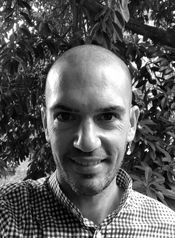

Pierre Vinclair : lauréat de la Villa Kujoyama (Kyoto) en 2010, il vit ensuite une dizaine d'années en Asie (Japon, Chine, Singapour) avant de rentrer en Europe fin 2019. Normalien (promotion L2002) et agrégé de philosophie, après une thèse sur les rapports de l'épopée et du roman, il poursuit des recherches en philosophie de la littérature.
Après avoir publié un roman, L'Armée des chenilles (2007), il a tenté de s'approcher de l'épopée par plusieurs voies : poésie (Barbares, 2009 ; Les Gestes impossibles, 2013), traduction (Kojiki, 2011), roman (La Fosse commune, 2016) et essai (De l'épopée et du roman, 2015)5.
En 2018, deux livres de poésie, l'un narratif, Le Cours des choses (2018), et l'autre de sonnets, Sans adresse (2018), marquent une transition vers un travail autant caractérisé par sa matière autobiographique que par son exigence formelle. Les deux livres ont pour décor la Chine où il habite alors.
Dans La Sauvagerie (2020), il a invité 48 poètes contemporains à lui offrir des dizains à partir desquels il a écrit un ensemble de 500 poèmes : "un « livre de combat », qui mobilise tous les moyens de son art pour affronter la catastrophe écologique. Parallèlement à son travail de poète, Vinclair développe une pensée théorique qui se manifeste ici par la parution simultanée d’Agir non agir."
En 2021, Vie du poème, entre essai et autobiographie, propose un premier bilan après une vingtaine d'années d'écriture.
En 2022 paraît L'Éducation géographique, "l’aboutissement de tout ce qu’écrit Pierre Vinclair depuis 2015 : un ensemble de 25 chants, chacun composé dans une forme propre, à propos d’un endroit du monde différent. Chaque chant se veut à la fois une carte postale envoyée dans le futur à ses filles, un exercice de lecture du paysage et une réflexion sur l’écriture et les arts. L’enjeu en est simple : il s’agit de trouver la forme à même de dire ce qui compte, à ceux qui comptent.
Depuis 2017, il s'occupe de la revue Catastrophes avec Guillaume Condello et Laurent Albarracin. Depuis 2019 il dirige la Collection S!NG aux éditions Le Corridor bleu où il a notamment publié Sharon Olds.
Pierre Vinclair: laureate of the Villa Kujoyama (Kyoto) in 2010, he then lived for ten years in Asia (Japan, China, Singapore) before returning to Europe at the end of 2019. After a thesis on the relationship between the epic and the novel, he continued his research in the philosophy of literature.
After publishing a novel, L'Armée des chenilles (2007), he has attempted to approach the epic through several avenues: poetry (Barbares, 2009; Les Gestes impossibles, 2013), translation (Kojiki, 2011), novel (La Fosse commune, 2016) and essay (De l'épopée et du roman, 2015)5.
In 2018, two books of poetry, one narrative, Le Cours des choses (2018), and the other of sonnets, Sans adresse (2018), mark a transition to a work characterized as much by its autobiographical material as by its formal requirement. Both books are set in China, where he was living at the time.
In La Sauvagerie (2020), he invited 48 contemporary poets to offer him tens of poems from which he wrote a set of 500 poems: "a "book of combat", which mobilizes all the means of his art to confront the ecological disaster [...]. In parallel with his work as a poet, Vinclair develops a theoretical thought that is manifested here by the simultaneous publication of Acting not acting."
In 2021, Vie du poème, between essay and autobiography, offers a first assessment after twenty years of writing.
In 2022, L'Éducation géographique will be published, "the culmination of everything Pierre Vinclair has been writing since 2015: a set of 25 songs, each composed in its own form, about a different place in the world. Each song is at once a postcard sent in the future to his daughters, an exercise in reading the landscape, and a reflection on writing and the arts. The challenge is simple: finding the right form to say what matters, to those who matter.
Since 2017 he has been in charge of the journal Catastrophes with Guillaume Condello and Laurent Albarracin. Since 2019 he directs the Collection S!NG at the editions Le Corridor bleu where he has published Sharon Olds.